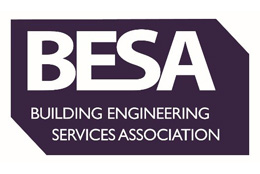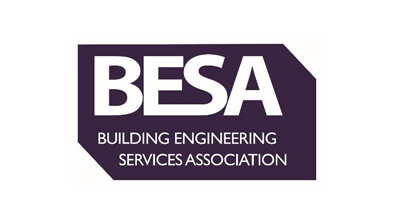BESA aims to inspire future generations with new training programme

The Building Engineering Services Association (BESA) has launched a training programme to help building services firms work more closely with schools and inspire future generations of building services engineers.
The BESA School Engagement and Engineering Discovery (SEED) Programme is fully funded by the Association and was developed by the schools engagement specialists Built Environment Skills in Schools (BESS) which has worked with more than 4,000 schools across the UK.
The 12-week programme is designed to give engineers and business owners the skills and knowledge they need to engage effectively with their local schools and promote career opportunities in the building services industry.
The training will be delivered in three tranches with eight places available on the September intake with another eight in January 2025 and a third cohort setting out on their engagement journey in April.
BESA members regularly cite long-term skills shortages as the biggest challenge to their businesses and this new fully funded scheme is part of the Association’s response. Members will now have the chance to work with experienced educators to gain insights into engaging the interest of school children and inspiring them to want to work in a sector that can make a huge difference to major social issues like climate change, air quality, and health & wellbeing.
As well as helping to shape a future generation of engineers and improve the flow of skilled workers into the sector, this exercise can also have major benefits for existing staff who gain valuable communication and presentation skills – not to mention improved confidence.
“This is a groundbreaking exercise for our industry and an opportunity not to be missed,” said BESA’s head of skills & policy Stuart Rattray. “Early adopters can demonstrate their commitment to education and community involvement which will boost their reputation.
“It also gives them the opportunity to spot and nurture young talent early, creating a direct pipeline of future apprentices and employees who are already familiar with the company and the work opportunities available in our sector.”
BESA also pointed out that working with schools aligns with corporate social responsibility goals, demonstrating a company’s commitment to giving back to the community and supporting local education.
“By helping to educate and inspire future engineers today, employers are investing in the long-term success and sustainability of their companies and the broader building engineering services industry,” said Rattray. “They will be sowing the SEEDS for the future of skills in our industry.”
Topics covered in the training include understanding the National Curriculum, OFSTED requirements, safeguarding issues, and best practices for engaging with schools safely and effectively. The programme also shows employers how to build partnerships with local educators.
Adam Taylor, chair of BESA’s Indoor Air Quality group, has already completed several engagement projects with schools focused on the topic of air quality. He said the adults working with the children also gained valuable, and sometimes surprising, insights.
“The children were clearly engaged and had a lot of fun building the air filter boxes we used as a practical exercise,” said Taylor who is CEO of ARM Environments. “The exercise ended up being one third educational (about air quality), one third just having fun building the boxes, and the other third was all about demonstrating you can do this kind of thing for a living and make a difference to people’s lives.
“As an example of how to engage school children in activities with a building services connection, it shows the importance of giving them something visual and interesting to work with,” said Taylor.















